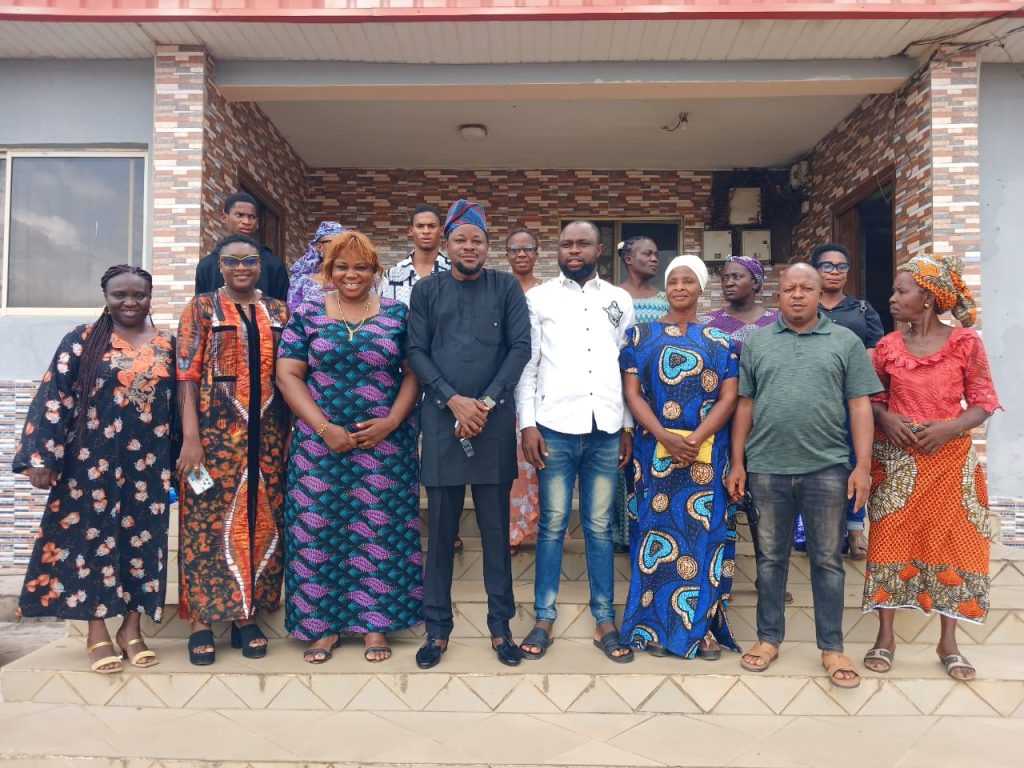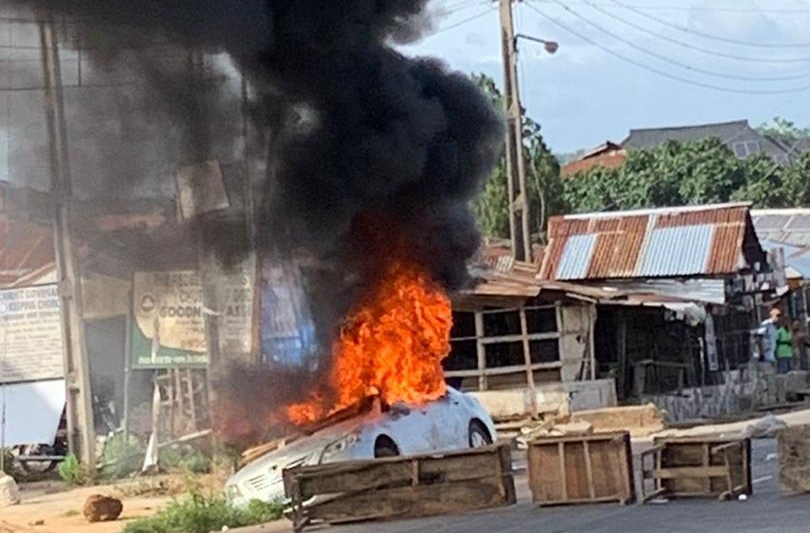Female Genital Mutilation (FGM)
FEMALE Genital Mutilation (FGM) is a traditional harmful practice that involves the partial or total removal of external female genitalia or other injury to female genital organs for non-medical reasons.It is estimated that more than 200 million girls and women have undergone female genital mutilation in the countries where the practice is still in practice. Research has also shown that every year, an estimated three million girls are at risk of undergoing female genital mutilation, the majority of whom are cut before they turn 15 years old.
THERE is this myth that FGM is often considered a necessary part of raising a girl child and a way to preparing her for adulthood and marriage. FGM is often motivated by beliefs about what is considered acceptable sexual behaviour. It aims to ensure premarital virginity and marital fidelity.Research conducted has shown that 27% of Nigerian women between the ages of 15 and 49 were victims of FGM, as of 2012. FGM is said to be practised in 31 countries in Africa, the Middle East, and Asia. It is most prevalent in Djibouti, Egypt, Guinea, and Mali, where 90% or women aged between 15 to 49 have been subjected to FGM.29 Jan 2021.
DURING the commemoration of the International Day of Zero Tolerance of FGM, on February 6, this year, UNICEF had warned that female genital mutilation is on the rise among Nigerian girls aged 0-14. Rates have risen from 16.9 per cent in 2013 to 19.2 per cent in 2018, a “worrying trend,” according to UNICEF.
IT noted that FGM remains widespread in Nigeria. With an estimated 19.9 million survivors, Nigeria accounts for the third highest number of women and girls FGM worldwide.
THE national prevalence of FGM among women in Nigeria aged 15-49 dropped from 25 per cent in 2013 to 20 per cent in 2018, while prevalence among girls aged 0-14 increased from 16.9 per cent to 19.2 per cent in the same period, according to NDHS figures; and 68 million girls worldwide were estimated to be at risk of female genital mutilation between 2015 and 2030.
A recent study found that, compared with women who had not been subjected to FGM, those who had undergone FGM faced a significantly greater risk of requiring a Caesarean section, an episiotomy and an extended hospital stay, and also of suffering post-partum haemorrhage.
ACCORDING to Peter Hawkins, UNICEF representative in Nigeria, “The practice of FGM not only has health benefits – it is deeply harmful to girls and women, both physically and psychologically. It is a practice that has no place in our society today and must be ended, as many Nigerian communities have already pledged to do.Millions of girls are being robbed of their childhoods, health, education, and aspirations every day by harmful practices such as FGM.”
IN the same vein, World Health Organization (WHO) has decried that FGM is a violation of rights with no medical justification, emphasizing that FGM has no health benefits as it can lead to not only immediate health risks, but also to long-term complications to women’s physical, mental and sexual health and well-being. The practice is recognized internationally as a violation of human rights of girls and women and as an extreme form of gender discrimination, reflecting deep-rooted inequality between the sexes.
AS it is practised on young girls without consent, it is a violation of the rights of children. FGM also violates a person’s rights to health, security and physical integrity, the right to be free from torture and cruelty , inhuman or degrading treatment, and the right to life when the procedure results in death.
AS part of the Sustainable Development Goals, the global community has set a target to abandon the practice of female genital mutilation by the year 2030.
THE Hope condemns in strong terms, further practice of FGM as it poses serious medical threat to the female gender and their life expectancy.We, therefore, call for total abolition of the practice, as done in May 2015, by former President Goodluck Ebele Jonathan, who signed a federal law banning Female Genital Mutilation.
WE recommend that governments all levels should mount campaigns highlighting dangers inherent in FGM while those still found engaged in the act should be made to face the wrath of the law. We believe that if some people were punished it would send signal that government is serious about dealing decisively with those still practising FGM in Nigeria.
FEMALE Genital Mutilation (FGM) is a traditional harmful practice that involves the partial or total removal of external female genitalia or other injury to female genital organs for non-medical reasons.It is estimated that more than 200 million girls and women have undergone female genital mutilation in the countries where the practice is still in practice. Research has also shown that every year, an estimated three million girls are at risk of undergoing female genital mutilation, the majority of whom are cut before they turn 15 years old.
THERE is this myth that FGM is often considered a necessary part of raising a girl child and a way to preparing her for adulthood and marriage. FGM is often motivated by beliefs about what is considered acceptable sexual behaviour. It aims to ensure premarital virginity and marital fidelity.Research conducted has shown that 27% of Nigerian women between the ages of 15 and 49 were victims of FGM, as of 2012. FGM is said to be practised in 31 countries in Africa, the Middle East, and Asia. It is most prevalent in Djibouti, Egypt, Guinea, and Mali, where 90% or women aged between 15 to 49 have been subjected to FGM.29 Jan 2021.
DURING the commemoration of the International Day of Zero Tolerance of FGM, on February 6, this year, UNICEF had warned that female genital mutilation is on the rise among Nigerian girls aged 0-14. Rates have risen from 16.9 per cent in 2013 to 19.2 per cent in 2018, a “worrying trend,” according to UNICEF.
IT noted that FGM remains widespread in Nigeria. With an estimated 19.9 million survivors, Nigeria accounts for the third highest number of women and girls FGM worldwide.
THE national prevalence of FGM among women in Nigeria aged 15-49 dropped from 25 per cent in 2013 to 20 per cent in 2018, while prevalence among girls aged 0-14 increased from 16.9 per cent to 19.2 per cent in the same period, according to NDHS figures; and 68 million girls worldwide were estimated to be at risk of female genital mutilation between 2015 and 2030.
A recent study found that, compared with women who had not been subjected to FGM, those who had undergone FGM faced a significantly greater risk of requiring a Caesarean section, an episiotomy and an extended hospital stay, and also of suffering post-partum haemorrhage.
ACCORDING to Peter Hawkins, UNICEF representative in Nigeria, “The practice of FGM not only has health benefits – it is deeply harmful to girls and women, both physically and psychologically. It is a practice that has no place in our society today and must be ended, as many Nigerian communities have already pledged to do.Millions of girls are being robbed of their childhoods, health, education, and aspirations every day by harmful practices such as FGM.”
IN the same vein, World Health Organization (WHO) has decried that FGM is a violation of rights with no medical justification, emphasizing that FGM has no health benefits as it can lead to not only immediate health risks, but also to long-term complications to women’s physical, mental and sexual health and well-being. The practice is recognized internationally as a violation of human rights of girls and women and as an extreme form of gender discrimination, reflecting deep-rooted inequality between the sexes.
AS it is practised on young girls without consent, it is a violation of the rights of children. FGM also violates a person’s rights to health, security and physical integrity, the right to be free from torture and cruelty , inhuman or degrading treatment, and the right to life when the procedure results in death.
AS part of the Sustainable Development Goals, the global community has set a target to abandon the practice of female genital mutilation by the year 2030.
THE Hope condemns in strong terms, further practice of FGM as it poses serious medical threat to the female gender and their life expectancy.We, therefore, call for total abolition of the practice, as done in May 2015, by former President Goodluck Ebele Jonathan, who signed a federal law banning Female Genital Mutilation.
WE recommend that governments all levels should mount campaigns highlighting dangers inherent in FGM while those still found engaged in the act should be made to face the wrath of the law. We believe that if some people were punished it would send signal that government is serious about dealing decisively with those still practising FGM in Nigeria.











